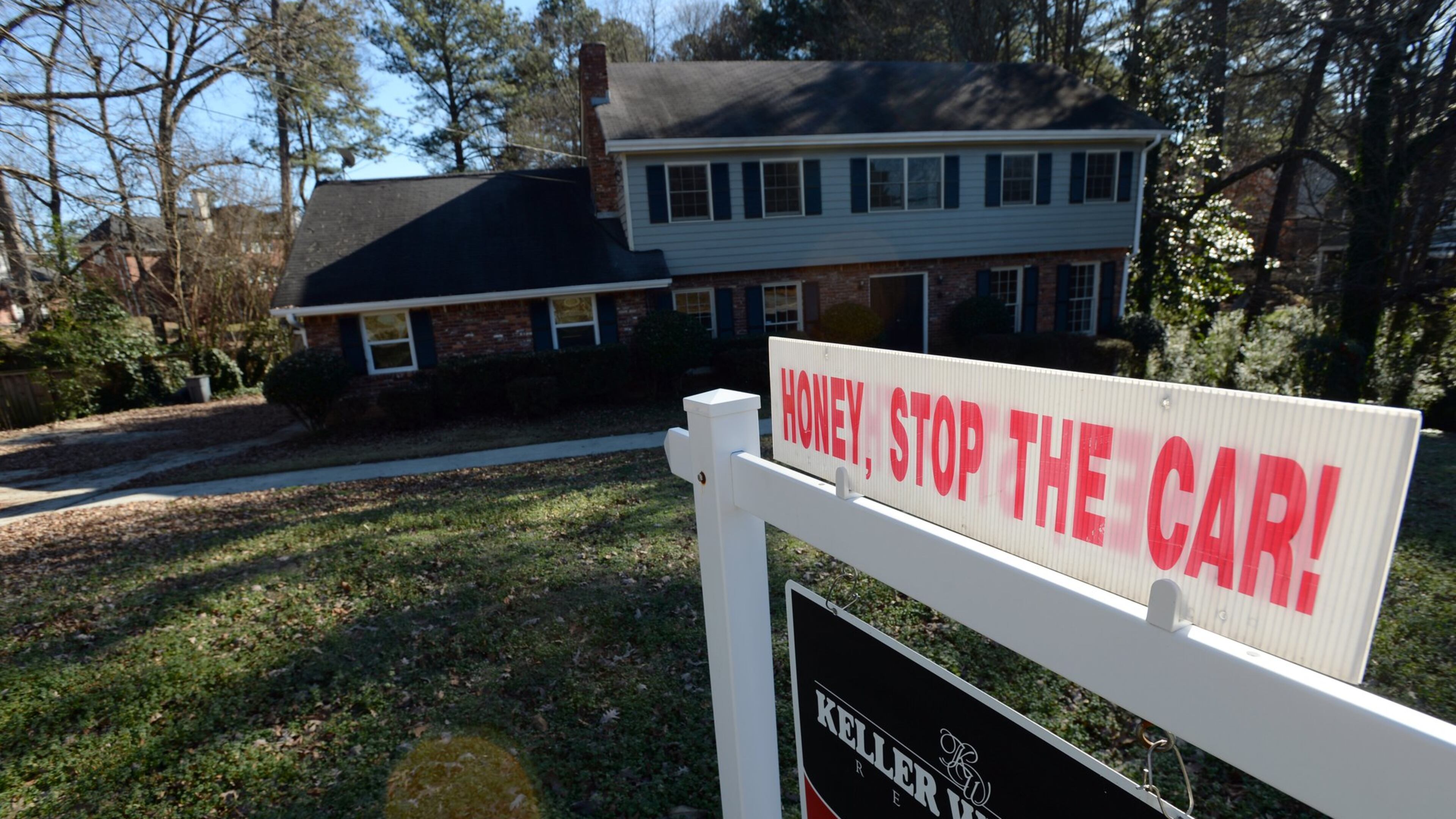The deal on Downpayment Assistance programs

With housing experts predicting an increase in mortgage rates this year, anyone considering buying a home may want to start looking now. A big hurdle for many potential buyers, according to Solomon Greene, is the downpayment.
Greene, an associate real estate broker for Keller Williams in metro Atlanta, writes a blog about the topic and regularly fields phone calls from house-hunters worried about coming up with downpayment cash.
"There is downpayment assistance and there is 100 percent financing. Both have the same objective, to have as little out of pocket expense as possible when buying a home," says Greene. The question he gets from most people is "do I qualify?"
The answer depends largely on your income and the size of your household. Income limits for downpayment assistance programs are set by the Department of Housing and Urban Development (HUD), says Greene. "One of the first questions I ask when someone calls is how many people are in your household?" Greene says. From there he will go down the list of programs to see which may be an option for the buyer. (See the graphic below and visit Greene's blog).
While downpayment assistance can help you afford the home of your dreams, here are some things you should know:
- You may still need to have some money. Some programs offer a match to help you make your downpayment -- so you pay a portion and the program pays the rest. Under some programs, you do not have to pay back the downpayment money if you remain in the home for five continuous without refinancing.
- Your credit score counts. It is possible to get assistance with a score as low as 620. Still, as with any major purchase, be sure your credit is in order before you apply for these programs.
- Expect to take part in a first-time home buyer course. Most programs require that you attend some sort of home buying course. It may be available online or by phone, Greene says. Also note, you can meet eligibility requirements for downpayment assistance without being a first-time home buyer.
- Not all lenders participate in all programs. "Work with a lender that has the program that is going to best fit your family's needs," Greene says. Agents often can provide a list of lenders that participate in the specific programs that are right for you.
- Some programs can be layered. If you qualifty for multiple programs through Invest Atlanta, for example, you may be able to get more money by participating in more than one program at once, says Greene.
- Prepare for PMI (private mortgage insurance). Whenever you put down less than 20 percent, there is going to be some type of mortgage insurance, Greene says.
- Not everyone will qualify. There are plenty of times when individuals do not qualify for downpayment assistance, says Greene. If you don't qualify for assistance, and cannot afford a minimum 3.5 percent downpayment (for an FHA loan), you can consider other alternatives such as: Borrowing from your 401k (not advised by most financial experts), using gift money (you must have a gift letter from the source and time to get the money in your account) or just taking more time to save up the minimum needed.
Here is a list of the maximum household incomes allowed in 2014 for participation in certain metro area downpayment assistance programs.
80% of the Area Median Income
- Invest Atlanta – Atlanta Affordable Homeownership Program (AAHOP)
- Gwinnett County – HOMEStretch
- Dekalb County First-Time Homebuyer Down Payment Assistance Program
- Fulton County – Home Ownership Program (HOP)
| Household Members | Maximum Household Income |
| Single-person: | $ 36,050 |
| Two-person: | $ 41,200 |
| Three-person: | $ 46,350 |
| Four-person: | $ 51,500 |
115% of the Area Media Income
| Household Members | Maximum Household Income |
| Single-person: | $ 51,850 |
| Two-person: | $ 59,250 |
| Three-person: | $ 66,650 |
| Four-person: | $ 74,050 |
120% of the Area Median Income
- Local Neighborhood Stabilization Programs
- Invest Atlanta - Neighborhood Lift with Conventional Mortgage
| Household Members | Maximum Household Income |
| Single-person: | $ 54,150 |
| Two-person: | $ 61,850 |
| Three-person: | $ 69,600 |
| Four-person: | $ 77,300 |
140% of the Area Median Income
| Household Members | Maximum Household Income |
| Single-person: | $ 63,100 |
| Two-person: | $ 72, 100 |
| Three-person: | $ 81,100 |
| Four-person: | $ 90, 100 |
More Stories
The Latest



